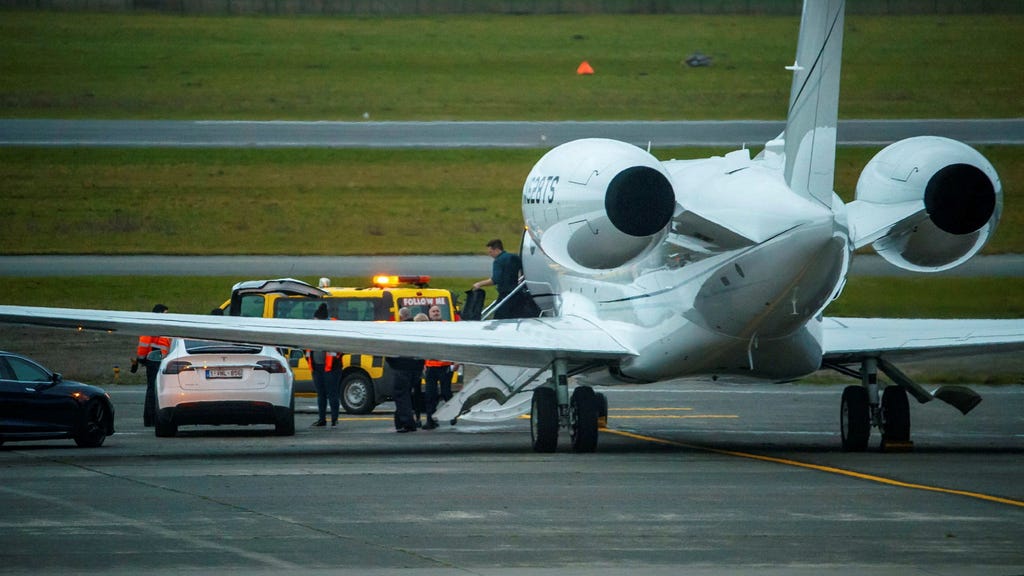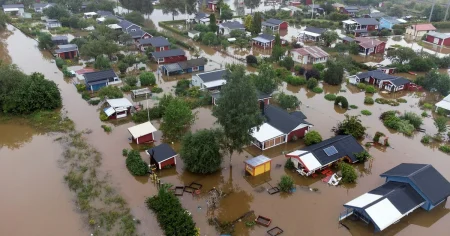The stark reality of carbon inequality is thrown into sharp relief by the staggering 46% surge in carbon dioxide emissions from the private jets of the ultra-wealthy between 2019 and 2023. This alarming increase paints a vivid picture of a lifestyle detached from the environmental concerns of the vast majority. While the world grapples with the urgent need to reduce emissions, the super-rich continue to indulge in a mode of transportation that disproportionately contributes to the climate crisis. The destinations frequented by these private jets further underscore the often frivolous nature of these flights, hinting at leisure trips and short hops that could easily be replaced by more sustainable alternatives. This blatant disregard for environmental responsibility raises serious ethical questions about the distribution of burdens and benefits in the face of climate change.
Analyzing the flight patterns of these private jets reveals a stark contrast between the travel habits of the ultra-wealthy and the rest of the population. While commercial airlines cater to the needs of mass travel, often connecting distant locations for essential journeys, private jets facilitate a lifestyle of convenience and luxury. Short hops between exclusive resorts, weekend getaways to exotic destinations, and impulsive trips to attend social events dominate the itineraries. This pattern of usage suggests that private jets are often employed not out of necessity, but as a symbol of status and a means of circumventing the constraints of scheduled flights. The environmental cost of such indulgence is enormous, with each private jet journey generating a carbon footprint many times greater than that of a commercial flight per passenger.
The case of Elon Musk, with his two private jets, serves as a potent microcosm of this broader trend. Data on Musk’s flight patterns exemplify the frequency and casualness with which the ultra-wealthy utilize private aviation. Whimsical trips, short flights covering minimal distances, and a seeming indifference to the environmental consequences underscore the problematic nature of this mode of transport in the hands of the super-rich. While Musk’s contributions to technological advancements, particularly in the realm of electric vehicles, are undeniable, his reliance on private jets exposes a disconnect between his public image as an environmental champion and his personal actions.
Tourism researcher Stefan Gössling’s observation that the super-rich ”use private jets like others use taxis” encapsulates the core issue. The normalization of private jet travel within this elite circle perpetuates a culture of excessive consumption and environmental disregard. The sheer accessibility and convenience of private aviation for the ultra-wealthy obscures the significant environmental costs associated with each flight. This casual attitude towards a highly polluting mode of transport further highlights the widening gap between the environmental awareness of the privileged few and the growing concerns of the wider population grappling with the consequences of climate change.
This disparity in travel habits raises profound questions about equity and responsibility in addressing the climate crisis. While governments and individuals around the world are being urged to make sacrifices and adopt sustainable practices, the ultra-wealthy seem to operate outside these constraints. The carbon footprint of their extravagant lifestyles dwarfs the efforts of ordinary citizens, creating a sense of injustice and undermining the collective effort required to mitigate climate change. This imbalance calls for a critical examination of existing policies and regulations regarding private aviation, and a broader discussion about the ethical implications of such unrestrained consumption in the face of a global environmental emergency.
The increasing reliance on private jets by the ultra-wealthy serves as a stark reminder of the complexities and contradictions inherent in addressing climate change. While technological advancements and global cooperation are essential components of the solution, they cannot fully offset the impact of a small but highly influential group whose lifestyles contribute disproportionately to the problem. Addressing this disparity requires not only technological solutions but also a fundamental shift in societal values, a recognition of shared responsibility, and a commitment to equitable burden-sharing in the face of a global challenge. The 46% increase in private jet emissions is not just a statistic; it is a symptom of a deeper societal issue that demands urgent attention and a concerted effort towards a more sustainable and equitable future.














